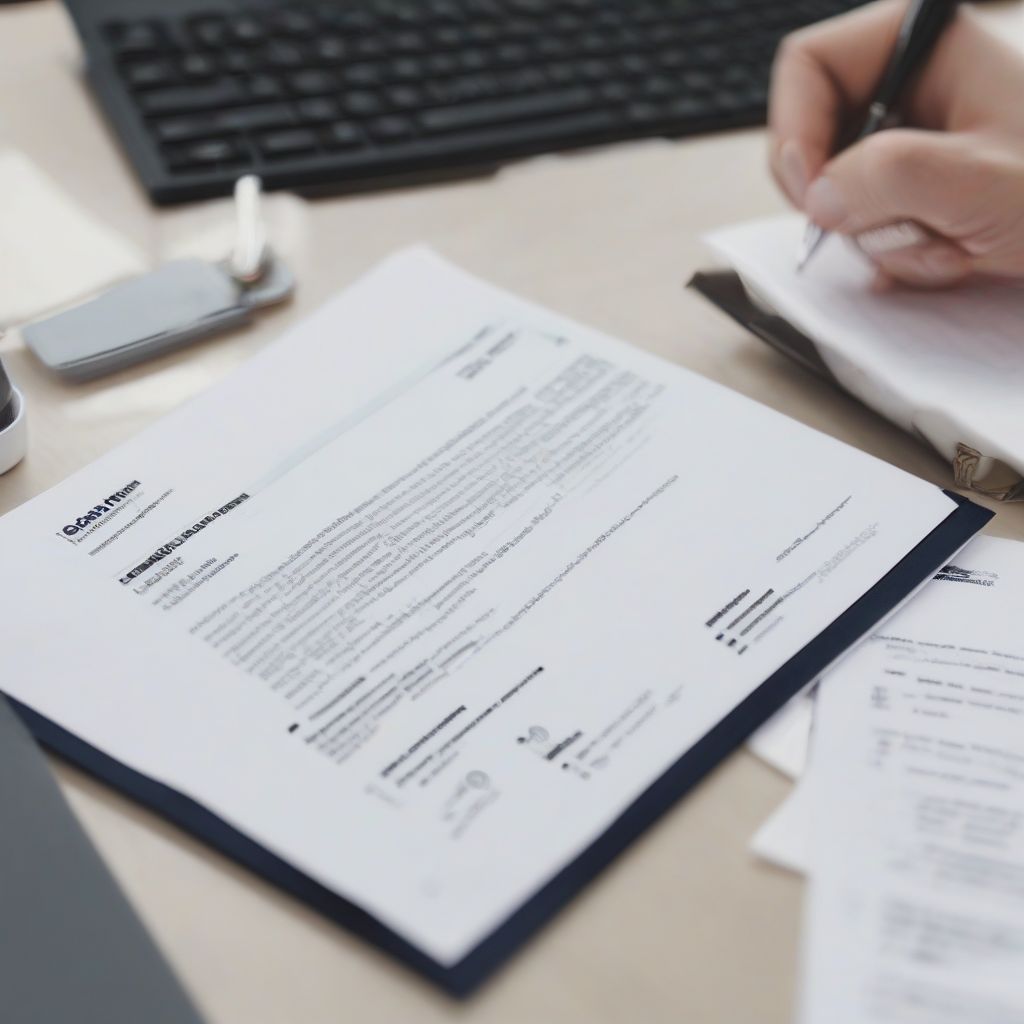We’ve all been there. You find the perfect job posting. Your heart races as you excitedly envision yourself excelling in this new role. There’s just one tiny problem: you actually have to apply, and that means crafting a compelling cover letter.
For many job seekers, the thought of writing a cover letter can be daunting. Many people aren’t even sure what a cover letter is actually for in today’s job market. Isn’t a resume enough?
The answer is a resounding no! A cover letter is your chance to make a powerful first impression and convince a recruiter to hit the “interview” button. But it’s not just about summarizing your resume. A truly effective cover letter complements your resume by adding depth, personality, and context to your qualifications, ultimately demonstrating why you are the ideal candidate.
Understanding the Power of a Complementary Cover Letter
Think of your resume as a delicious, well-plated meal. It looks great on its own, right? Now, imagine that same meal with a side of perfectly paired wine. That’s your cover letter! It enhances the main course (your resume) and brings out its best flavors (your unique skills and experiences).
A cover letter that complements your resume goes beyond simply listing your accomplishments. It tells the story of your career journey in a way that captures the hiring manager’s attention and leaves them eager to learn more.
 Cover Letter and Resume
Cover Letter and Resume
Key Ingredients of a Winning Cover Letter
Just like a master chef carefully selects the ingredients for a signature dish, crafting a winning cover letter requires attention to key elements:
1. A Captivating Opening
Ditch the generic greetings! Instead, start with a strong and engaging opening paragraph that grabs the reader’s attention from the get-go. Consider these approaches:
- Highlight a Relevant Achievement: Begin with a concise anecdote showcasing your skills and how they align with the job requirements.
- Express Your Enthusiasm: Let your passion shine through! Clearly convey your excitement for the specific role and company.
- Address a Pain Point: If you know the company is facing a particular challenge, demonstrate your understanding and offer a glimpse into how you can contribute to a solution.
2. Connect the Dots: How Your Experience Aligns
The body paragraphs are your chance to expand on your resume and showcase the relevance of your skills and experiences. Here’s how:
- Target the Job Description: Carefully analyze the job posting, identifying key skills and requirements. Then, strategically weave those keywords into your cover letter.
- Tell a Story, Don’t List: Avoid simply regurgitating your resume. Instead, use storytelling techniques to illustrate how your past experiences have prepared you for the challenges of this new role.
- Quantify Your Accomplishments: Instead of simply saying you’re “results-oriented,” back up your claims by providing specific examples of how you’ve made a tangible impact in previous roles. Use numbers, data, and concrete outcomes whenever possible.
3. Show Your Personality (and Your Research!)
A cover letter is a professional document, but that doesn’t mean it needs to be dry or boring! Let your personality shine through, while still maintaining a professional tone.
- Infuse Your Voice: Write in a natural and engaging way that reflects your communication style. Let your enthusiasm and passion for your work be evident.
- Tailor, Tailor, Tailor: Demonstrate that you’ve done your research on the company. Mention something specific that resonates with you—their company culture, a recent project, their mission, etc. This shows you’re not just mass-applying to every open position.
- End on a High Note: Reiterate your excitement and how your skills and experience make you the perfect fit. Conclude by expressing your eagerness to discuss your qualifications further in an interview.
Common Cover Letter Mistakes (and How to Avoid Them!)
Even seasoned professionals can fall prey to common cover letter blunders. Steer clear of these missteps:
- Generic Greetings: “To Whom It May Concern,” or “Dear Hiring Manager,” screams that you haven’t taken the time to personalize your application. Take a few minutes to find the hiring manager’s name on LinkedIn or the company website.
- Typos and Grammatical Errors: Proofread, proofread, proofread! In today’s digital age, there’s no excuse for careless mistakes. Consider using a tool like Grammarly for an extra set of eyes.
- Too Much Information: A cover letter shouldn’t be a novel. Keep it concise and focused, aiming for no more than one page.
- Negative Talk: Focus on the positive! Your cover letter should highlight your strengths and achievements, not dwell on past job dissatisfaction or negativity.
Your Cover Letter: A Powerful Tool for Success
In today’s competitive job market, a well-crafted cover letter can be the key to landing your dream job. By viewing it as an opportunity to complement your resume, showcase your unique value, and tell your professional story, you’ll be well on your way to impressing hiring managers and securing those coveted interviews.
[amazon bestseller=”resume writing”]
So, go forth and write a cover letter that truly complements your resume and sets you apart from the competition. You’ve got this!
